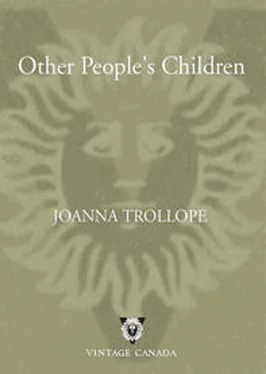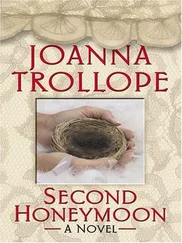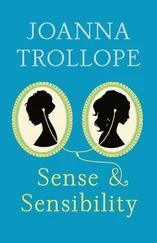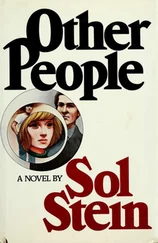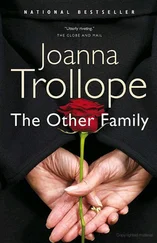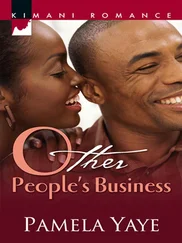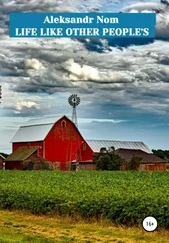He looked at her.
‘But that’s all it was. I thought, at one point, I would simply die of grief but even at the lowest ebb, I knew there was no-one to blame. It was chance, a hazard, that random blow the ancient world was so respectful of.’
‘Did you bring the children up on your own?’
‘Yes. Until nine years ago, when Rufus was on the way and I married Josie.’
‘But your first children were nearly grown up then—’
‘Nearly. It wasn’t easy. In fact, it was largely awful. Dale and Lucas – Dale particularly – were used to having me to themselves.’
Elizabeth turned to look for her coat.
‘I’ve never had any competition for my father. Maybe I’m lucky—’
Tom said, ‘Look, I’m sorry. I really am very sorry. I never meant to burden you with all this, I never intended to do anything except, in the kindest way, discover what you really want to do about this house.’
She lifted her coat off a nearby chairback. He rose and took the coat from her and held it out for her to put on.
‘I don’t know now.’
‘Now?’
‘You’ve made me think. Or at least, this morning has.’
He left his hands on her shoulders for a second after the coat was on.
‘Have you enjoyed it?’
‘Yes,’ she said.
‘Even though I’ve dumped on you?’
‘I didn’t mind that. Sometimes—’ She paused.’ Sometimes, people don’t, because they don’t think I’ll understand.’
He came round to look at her.
‘I would so like to give you lunch.’
‘Now?’
‘Right now,’ he said.
‘Well!’ Elizabeth’s father said. ‘All settled?’
‘No,’ Elizabeth said. She looked round the room. ‘At least, not about the house. Did you say you’d found somebody to clean this?’
‘Yes,’ Duncan Brown said. ‘Two mornings a week.’
‘Has she been yet?’
‘It’s a he. Part-time bartender at The Fox and Grapes. No, he hasn’t.’
‘It’s awful, Daddy. It’s really dirty.’
‘Is it?’
‘Yes.’
‘I don’t seem to notice.’
‘Or mind.’
‘Not in the least.’
‘I think,’ Elizabeth said, ‘I must do something about the bathroom, at least.’
‘Why don’t you tell me about the day instead?’
‘I feel a bit shy about it—’
‘Why?’
‘Because I’ve learned a lot about Tom Carver in a short space of time.’
‘Why,’ Duncan said, taking his reading glasses off, ‘should that make you feel shy?’
Elizabeth leaned in the doorway to the tiny hall.
‘Because he told me so much. I’m not used to it. I’m not used to people telling me things about themselves unless they want to show off to me. And he didn’t. He seemed to – well, to want me to know.’
‘Ah,’ Duncan said.
‘Don’t sound so knowing.’
‘It wasn’t so much knowing, as light dawning.’
‘There isn’t any to dawn. We had lunch in a wine bar and he talked much more than me.’
‘That doesn’t surprise me. You never were much of a talker.’
‘Daddy,’ Elizabeth said, ‘I’m beginning to wonder if I should have bought that house.’
Duncan put his reading glasses back on and looked at her over the top of them.
She said, ‘Tom asked me if I could imagine living there, and I’m not sure I can.’
‘Dearest,’ Duncan said, ‘when you were five and we were going camping in Brittany, you said very politely to your mother and me that you didn’t think you’d come because you couldn’t think what it would be like.’
‘What did I think when I got there?’
‘You seemed to like it. I taught you how to ask for bread and you went trotting off every morning to the baker’s, looking extremely serious, and came back with the right loaf every time.’
‘But this is different.’
‘Is it?’
‘It’s bigger.’
‘Only proportionately. You’re bigger, too.’
‘I don’t want,’ Elizabeth said suddenly, ‘to buy another chunk of solitude. I don’t want to delude myself that I’m making a change when I’m actually only doing more of the same in a different place.’
Duncan stood up. Crumbs from the pale, dry water biscuits he ate with his mugs of soup showered like dandruff from the creases of his cardigan. He looked, as he had always consolingly looked, like an elderly heron, his head thrust forward on a long thin neck, on a long thin body.
‘You’re an old bag lady, really,’ Elizabeth said fondly.
He smiled at her. He said, ‘And you’re a nice woman.’
‘Tom Carver said that.’
‘Well,’ Duncan said, ‘at least he’s old enough to know.’
When he got home, Tom Carver opened a tin of rabbit in jelly for the cat. He didn’t much like cats, but this cat had been Josie’s and she had left it behind when she departed, so that it became for Tom a kind of ally, a partner in abandonment. It was, in any case, an amiable cat, a huge, square, neutered tom called Basil who lay like a hassock in patches of sunlight, moving ponderously round the house all day as the sun moved. He had developed an infected ear recently and, when Tom took him to the vet, the vet had said he was grossly overweight and his heart was under strain. He prescribed a diet, which included these tiny gourmet tins of prime lean meat in savoury jelly. Basil thought they were delicious, if pitiably small, and had taken to supplementing them with anything Tom left lying about – butter or bacon or packets of digestive biscuits. He was probably, Tom thought, rubbing the broad cushiony space between his ears, now fatter than ever.
When he had fed Basil, Tom went down to the basement. If Elizabeth Brown had found his kitchen contrived, he reflected, she would think even less of the basement. It was a kind of artistic engine room, except that it was silent. It was pale and calm and furnished with immense drawing boards and long low cupboards, like map cases, into which Tom slid his plans and drawings. The lighting was immaculate. The only ugly thing in the room was the giant photocopier and it lived behind a Japanese screen of cherry wood and translucent paper. The room was austere and serene and, to Tom’s eyes, that Saturday afternoon after the lunch in the wine bar with Elizabeth, it looked very faintly precious.
He moved to the nearest drawing board and switched on the carefully angled lights above it. On it lay plans for a barn conversion. It was a handsome barn, a big strong nineteenth-century barn, and Tom was having trouble persuading the owners not to fill the huge east and west gables, through which the wains had once driven, with glass. He slipped on to the stool in front of the board and looked at his drawings. They were good, but not wonderful. They lacked originality. He thought of Elizabeth kneeling on the floor of the sitting-room at Lansbury Crescent, looking at other drawings. He thought of her sitting across the table from him in the wine bar, listening to him, eating a salad niçoise very neatly. He thought how nice it would be if they were going to eat together again that evening, after a concert perhaps, or the cinema. He thought that perhaps he would ring her at her father’s flat and suggest lunch tomorrow, on Sunday, before she caught her train back to London. Then he remembered that he couldn’t. He got off his stool and began to wander down the basement. Dale was coming tomorrow. Dale had had a bad time recently, being ditched by that boy and everything. Tom reached the windows at the end of the basement and looked out into the dusky garden. He would not, he thought, tell Dale about Elizabeth.
Becky wondered if, at fifteen, the cold could kill you. She knew if you were old it did, because you couldn’t move about much and you got scared about turning the heating on because you couldn’t pay the subsequent bills. Becky could hardly imagine feeling like that. In her view, you did, in so far as you could get away with it quite easily, what you wanted or needed to do, and left the problem of paying for it to someone else. At least, mostly she felt like that. But not, oddly enough, lying rigid with cold as she now was, with all her clothes on in a bed in her mother’s house that was so cold itself it felt damp. If there’d been a heater in the room – which there wasn’t – even Becky would have hesitated to turn it on. Not because she’d been told not to – after all, doing things she’d been told not to was one of her lifelong specialities – but because of that awful scene downstairs two hours ago when Rory had said he was still hungry and Nadine, who’d been laughing her head off at something ridiculous she’d found in the local paper, suddenly switched to screaming rage and had scrabbled about the disheveled kitchen until she’d found her bag and had then emptied what was in her purse over Rory’s head and shoulders, shrieking all the time that he could eat that if he bloody well wanted to because it was all there was until his fucking father got round to remembering his responsibilities.
Читать дальше
